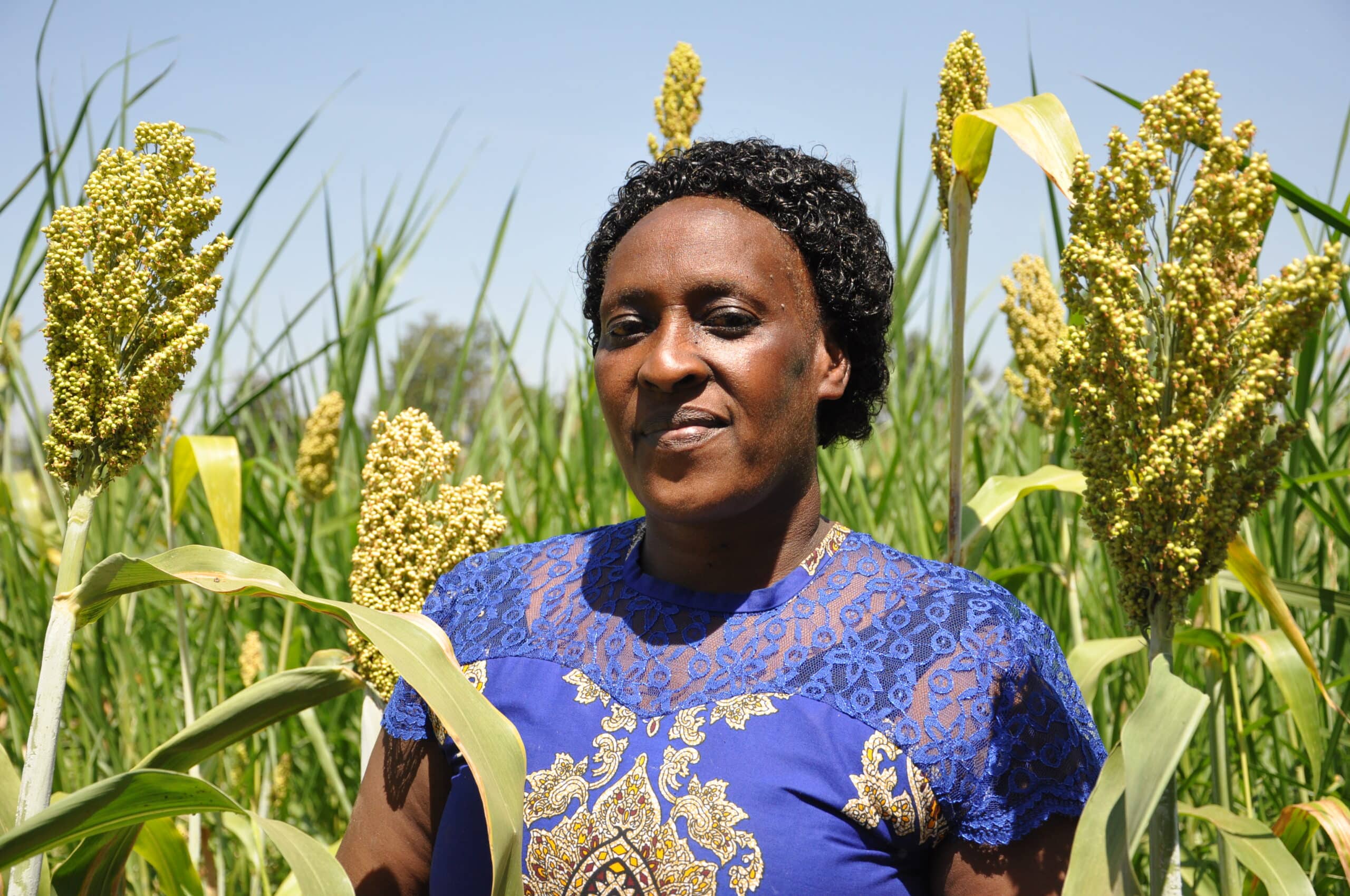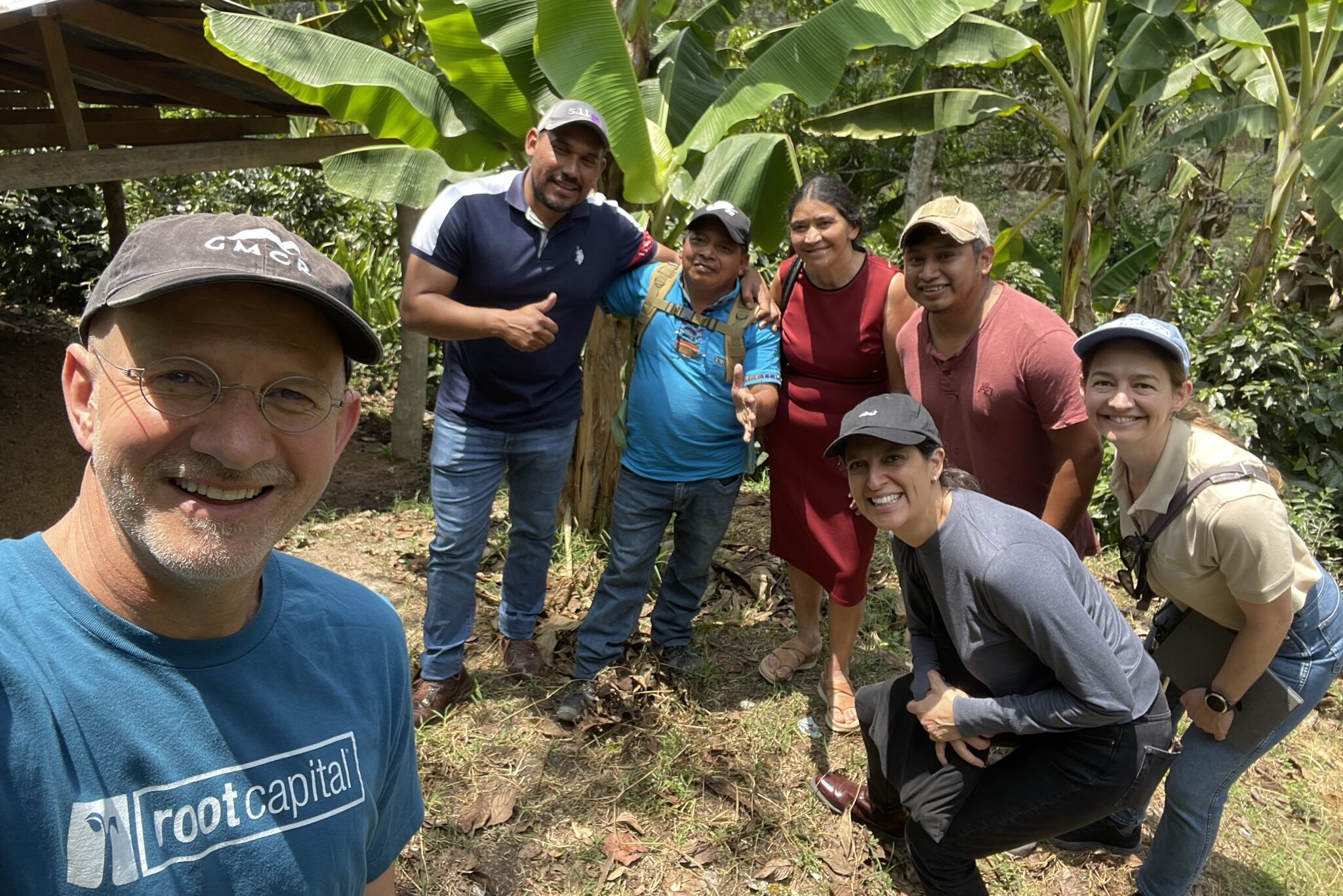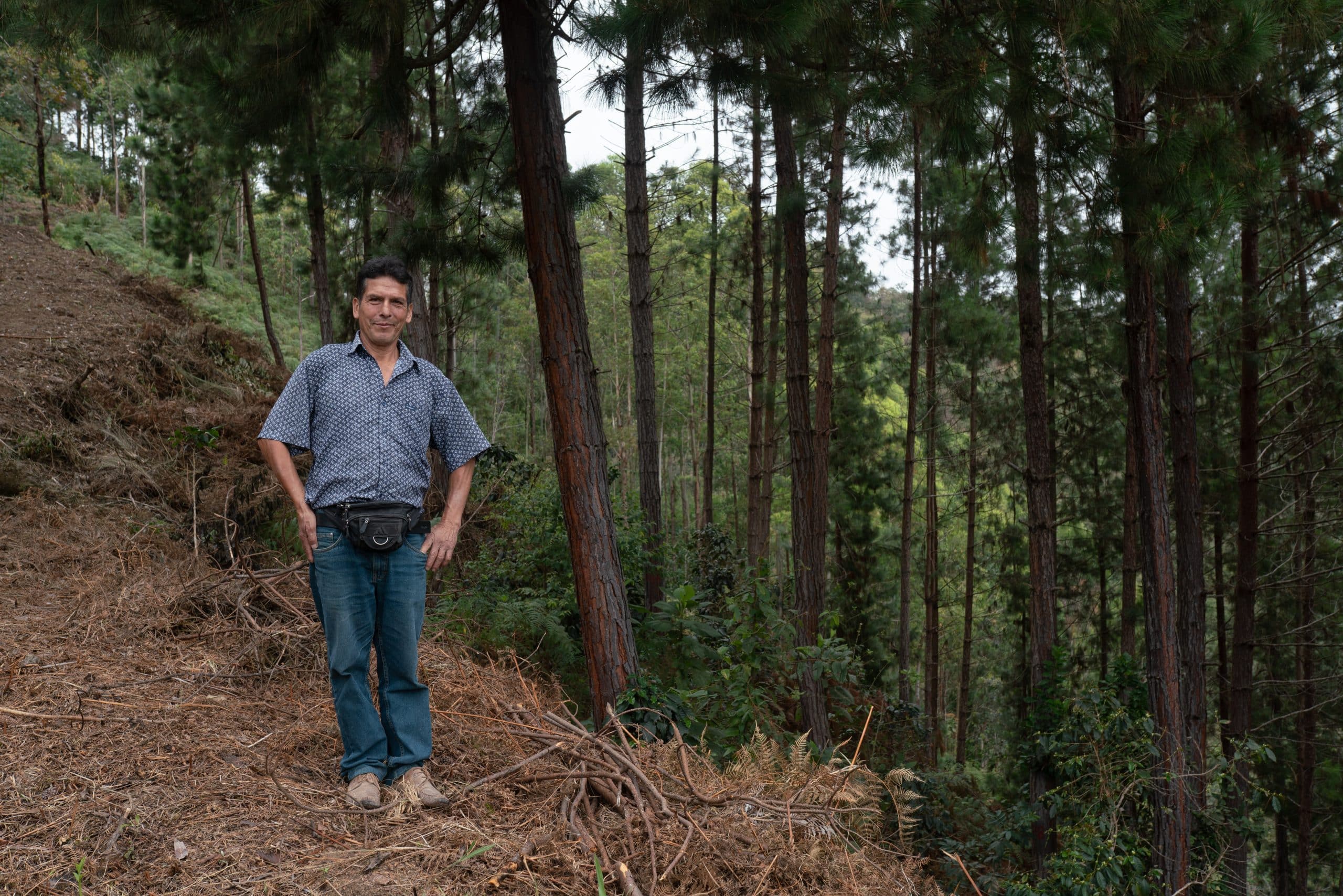 Mountains near the Pula Lenca Cooperative in Marcala, Honduras, November 2023. Credit: Dylan Butler/Root Capital.
Mountains near the Pula Lenca Cooperative in Marcala, Honduras, November 2023. Credit: Dylan Butler/Root Capital.
As we near the end of 2023, we will say farewell to the warmest year on record-a year where our clients and their communities faced ever-more-urgent climate threats, like hail storms knocking coffee cherries off trees in Rwanda and heavy rains in Peru. Against this backdrop, world leaders convened in Dubai at COP28, the United Nations’ annual global climate conference to address the climate crisis.
As this year’s COP played out, we kept a special eye out for solutions to address the food-climate crisis, especially for smallholder farmers. Smallholder farmers-who produce one-third of the world’s food, but only receive 0.3% of international climate finance-find themselves on the front lines of the climate crisis. Although they are some of the people least responsible for human-induced climate change, their livelihoods are some of the most exposed to a changing climate. In a 2022 Root Capital survey, over 90% of Root Capital clients reported experiencing climate shocks that negatively affected their businesses and communities. To prepare themselves and their farmers, our clients have begun to invest in adaptation measures, but, in general, lack access to finance to scale solutions.
We were therefore encouraged to see the announcement of the COP28 UAE Declaration on Sustainable Agriculture, Resilient Food Systems, and Climate Action, which has been signed by 158 countries to date. The declaration stressed that any path to achieving the long-term goals of the Paris Agreement must include the transformation and adaptation of agriculture and food systems, in the face of new climate realities.
In particular, we found the following three items from the declaration cause for optimism:
Looking to local communities to set the agenda
Climate change is a global phenomenon that manifests differently based on context: causing droughts in some communities, and flash floods and landslides in others. Not only do climate impacts vary around the world, so do adaptation solutions identified by communities. It is imperative that local entities determine their own adaptation and mitigation strategies to ensure that climate action supports and centers their aspirations for the future.
Through our Agronomic and Climate Resilience Advisory services, we aim to prioritize this local expertise. Client and farmer knowledge of local climate risks is complemented by global climate data to create tailored adaptation plans, which help our clients and their farmers start or scale their respective adaptation journeys. There is no one-size-fits-all approach to adaptation planning, and we are glad to see world leaders emphasize the importance of local leadership in identifying climate solutions.
Calls to increase financing for agricultural communities
Agricultural businesses and farmers around the world are already investing in climate action, but their current level of investment will not be enough to prepare for climate change. It is estimated that smallholder farmers need $300 to $350 billion to be able to effectively adapt to climate change, over 100 times more than the $2 billion directed at small-scale family farmers and rural communities in 2021.
The businesses we work with regularly cite lack of access to capital as the primary barrier to investing more in climate solutions. When external financing is available, clients lead the way for their communities: our clients spent approximately 2-3x more on climate action when they had access to suitable financing.
We applaud the declaration’s call to increase climate financing for sustainable agriculture and resilient food systems, including through blended finance instruments. We’ve seen that blended finance is critical to make climate action financing accessible to vulnerable businesses and farmers. Our clients work in communities where many live under the international poverty line-and now climate change and other global shocks are raising costs and lowering profits. Blending commercial and philanthropic capital together can be an effective way to get right-sized, affordable climate capital to frontline communities.
Recognizing the importance of inclusive climate action
The declaration calls for targeted support for youth and women agricultural workers whose livelihoods are threatened by climate change. Prioritizing youth and women is crucial for fostering sustainable development and building resilience. Women are often the backbone of agricultural communities and make up 50% of the agricultural labor force. However, they are more vulnerable to climate change than their male counterparts.
At the same time, today’s global youth population is the largest in world history, with a vast majority living in developing countries. Youth bear the brunt of unemployment challenges across the world. Agriculture is an aging sector, with the average of farmers steadily ticking upward. Yet, many youth do not see a viable future for themselves in the agricultural sector. This presents a growing challenge for food systems and a growing opportunity for youth engagement down the line.
It is essential that we embrace the distinct perspectives and experiences of diverse groups, particularly women and youth, who are not only profoundly and uniquely affected by climate issues, but also bring innovative contributions to the table. Through our Gender Equity Advisory services (GEA), we provide gender equity grants for clients to establish gender action plans to close organizational gender gaps. With Root Capital’s support, our clients are also coming up with solutions to address these problems. One client created groups where women could access loans, exchange farming insights, and collaboratively tackle crop challenges to offer tailored services to their women members. We believe that closing gender gaps and centering less-represented voices at the enterprise level will ultimately strengthen the businesses’ and communities’ ability to adapt and thrive in a changing environment.
We are also investing in creating attractive employment opportunities in agriculture for rural youth, via partnerships with local agricultural businesses. Root Capital’s Talent Partnerships program connects technical college graduates to internship opportunities at local agricultural enterprises, creating jobs for the next generation and increasing businesses’ capacity to provide climate action training to farmers via workshops and farm visits. An internal evaluation has indicated that our Talent Partnerships program has resulted in more farmers receiving more frequent farm visits and support in improved agronomic practices. The interns have also acted as “agents of innovation” that have contributed to changes in mindset across farmers and other cooperative staff.
As COP28 concludes, we applaud the UAE Declaration for highlighting the importance of sustainable, resilient food systems in the fight against climate change-a topic that has long been overlooked on the global stage. And we recognize that words are not enough. That is why Root Capital, alongside more than 2,000 leaders in business, finance, philanthropy, politics, and academia, signed on the B Team’s Call to Action letter urging COP leadership to take action now to secure our future.
We hope that we, as a global community, work to ensure the declaration’s objectives translate into real-world climate action for smallholder farmers and agricultural communities around the world. This involves not just financial investment, but also investment in partnerships with local communities to ensure their voices shape the agenda.
The success of our global campaign against climate change hinges on this collective action, where every nation, community, and individual plays a part in shaping a sustainable future. It’s a call to action for all of us: an opportunity to turn promises into tangible investments to combat the climate crisis.
You may also be interested in...

Announcing Our New Climate Resilience Roadmap Annual Report
Deep in the Meru region of Kenya, Shalem Investments has witnessed firsthand the effects of shifting
Date:

IN PHOTOS: How Small Businesses Are Driving Rural Prosperity and Tackling Climate Change in Honduras
In March, I went on my fourth trip with Root Capital—one very near and dear to my heart because it was to my home country: Honduras. As someone who was born and grew up there—and who has since spent a career working to address the challenges of poverty, climate change, and migration in this region and beyond—it was very meaningful to once again be amid the verdant farms and vibrant communities at the heart of this work…
Date:

Carbon, Climate, and Coffee: Paying Farmers for Their Efforts to Combat Climate Change
CENFROCAFE producer member Anselmo Díaz on his coffee farm. Rumi Bamba, Las Pirias, Jaen, Cajamarca, Peru.
Date:

